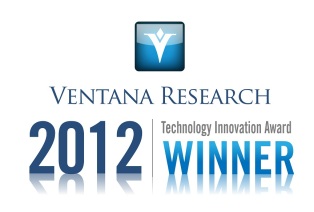IBM Watson blends existing and innovative technology into a new approach called cognitive computing. At the simplest operational level it is technology for asking natural language-based questions, getting answers and support appropriate action to be taken or provide information to make more informed decisions.
IBM Watson blends existing and innovative technology into a new approach called cognitive computing. At the simplest operational level it is technology for asking natural language-based questions, getting answers and support appropriate action to be taken or provide information to make more informed decisions. The 
This innovative new approach to computing is designed to aid humans by working with natural language – English in the case of today’s Watson. This approach earned Watson the 2012 Technology Innovation Award in the category of Overall Operational Innovation.
For those of you who are not used to the word cognitive, the foundation of cognition is the sum of all the thinking processes that contribute to gaining knowledge for problem-solving. In computational systems these processes are modeled using hardware and software; machine-based cognition thus is a step toward imbuing an artificial system with attributes we typically consider human: the abilities to think and learn. Watson builds on a foundation of evidence from preexisting decisions and knowledge sources that it can load for reference in future inquiries. The evidence-based reasoning that Watson employs to answer question is part of the big deal in its approach.
Watson supports three types of engagement – ask, discover and decide – that take natural language questions, find facts to support a decision process, then gets probabilistic guidance on decisions. This goes beyond search and retrieval technology; machine learning and processing of questions using very large volumes of data, commonly referred to as big data, is the foundation on which Watson as a cognitive system operates. Most important is the continuous learning method and what I would call adaptive intelligence. While machine learning and pattern-based analytics are part of the cognitive system, the ability to process big data efficiently to provide a probabilistic set of recommendations is just the kind of innovation many industries need.
IBM has focused much of its work on Watson on healthcare, with potential life-saving implications in an environment where doctors must make crucial decisions in the midst of pressure from the complexity, costs, overload of information and policies. Watson can ingest large volumes of information from reports and documents that can accelerate its learning processes to support a range of healthcare needs. Watson can be used in three areas in healthcare: teaching, practice and payment. IBM works with Wellpoint to support doctors in making decisions, and also eliminating waste or misapplied treatments that insurance providers have to cover. Watson is being used today to determine where improvements can be made in cancer treatment. IBM has targeted specific Watson solutions to help in the research, diagnosis and treatment, care and utilization aspects of battling cancer.
IBM has a huge opportunity to bring innovation to business
Regards,
Mark Smith
CEO & Chief Research Officer